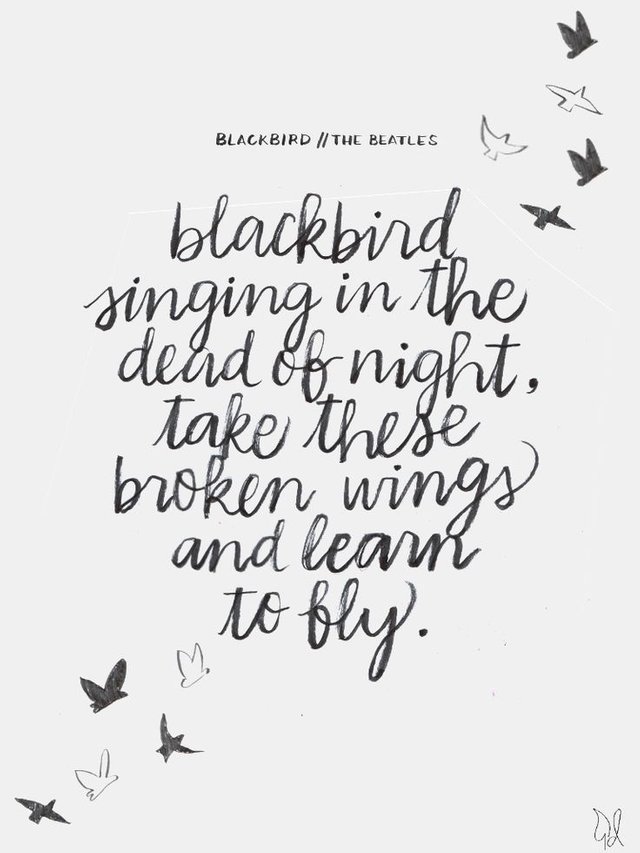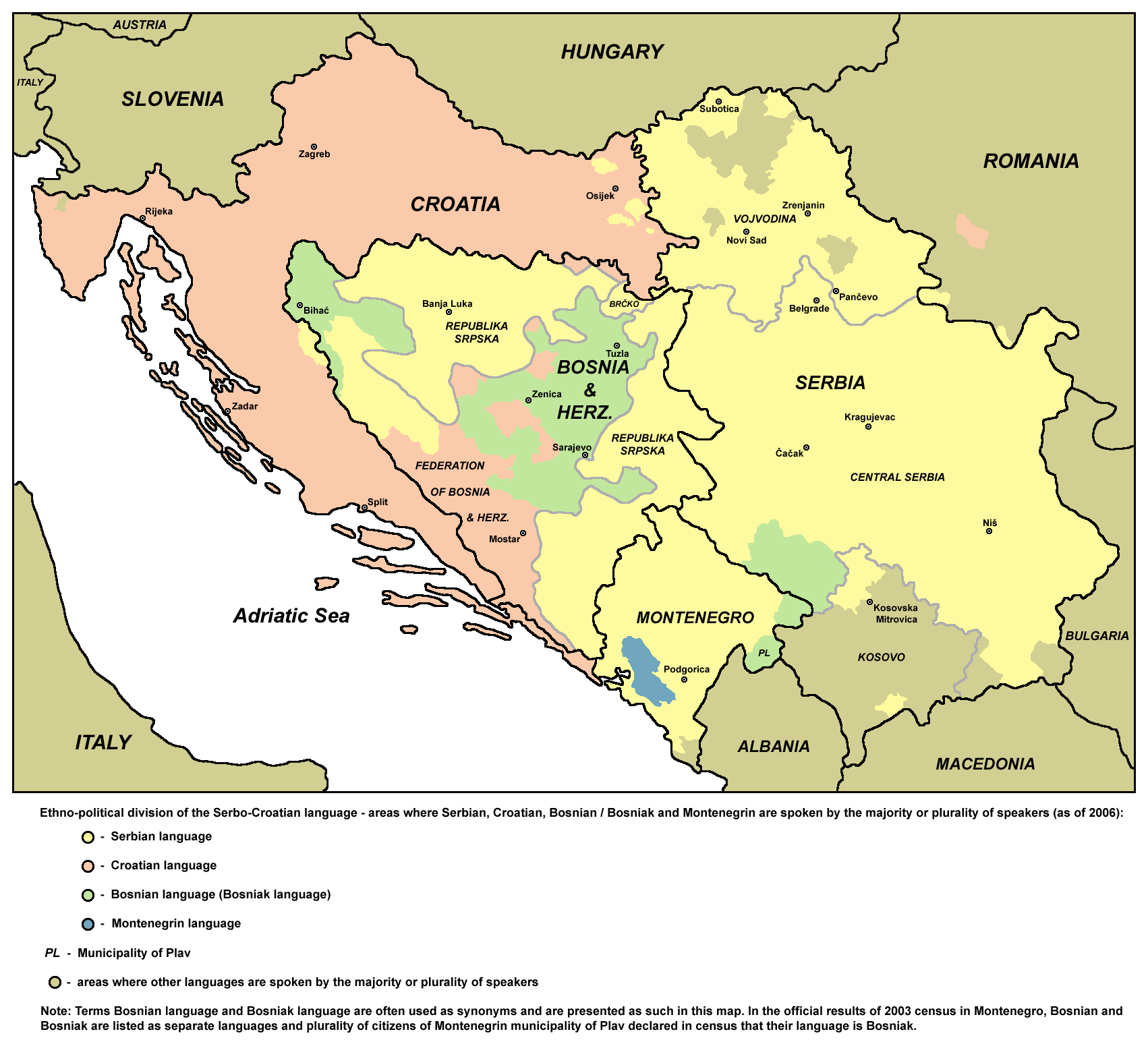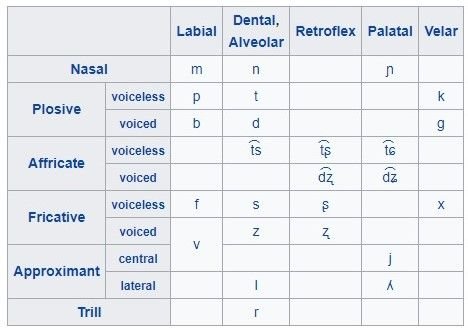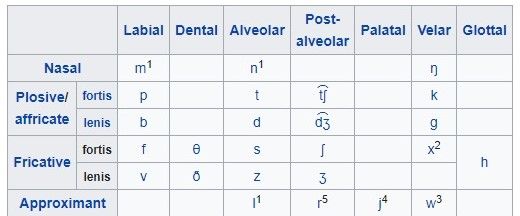ON MUSIC AND LANGUAGE / WHY I WRITE AND SING IN ENGLISH
I was recently interviewed by a Montenegro based online music magazine called Stereoart about my music and my views on new and emerging artists in Croatia and in the neighbouring countries (here's the link to the original interview although it's only available in Croatian http://stereoart.me/interviju/item/905-ivan-grobenski-konacno-se-ja-i-ja-dobro-razumijemo). It was an online interview and when I got the questions via e-mail I was surprised at how fresh they were, avoiding the usual suspects such as ''what music do you enjoy the most'' or ''what whas the last album you listened to before this interview''. There was this one particular question that really got me stuck and I spent a few days thinking about it before I even tried to explain myself. The question was: WHY DO YOU WRITE AND SING IN ENGLISH? It's probably one of the best (if not the best) questions I've ever been asked in an interview and I want to write more about it here. I've sort of been aksed this question before but not in the same way (people would usually ask something like ''are you trying to make it outside Croatia because you sing in English?''). I will translate the points I made in the original interview but I will also expand my answers with the points that were left out because it was a one page interview format.
LEARNING ENGLISH SINCE I CAN REMEMBER
I started taking English classes when I was five years old and continued to learn it all my life. When I was in highschool, I was in love with English so much I was planning on studying it. When I started college, I had to quit my English classes because I moved town but I continued to use it as much as possible. My written English has gotten worse over the years because I wasn't writing on every day basis so I have to check my spelling here and there and I have some grammatical issues (like ''are there two m's in grammatical?'' and ''is this a proper formulation?'') but I can converse without thinking about it and I'm still trying to use English as much as I can thru watching movies without subtitles and conversing with my Englisgh speaking friends. I consider English to be my second mother tongue and I've felt that way for as long as I can remember.
LEARNING A LANGUAGE THROUGH MUSIC
Music is a great way to learn a foreign tongue. Kids are great in learning new languages. As we get older, it becomes harder and harder for us to learn a new language due to the changes in the wiring of our brains. When I was a kid I had this cassette my father gave me. The A side had ''the best of the Rolling Stones'' and the B side had ''the best of the Beatles''. I remember playing it every day before bedtime and falling asleep with it. I listened to it so much it eventually became distorted and we had to throw it away. I realised later that the Beatles were responsible for most of my early English skills. Their melodies are so cathy I began to sing along to the tape, trying to mimic the sounds that were coming out of the speaker without actually understanding them. I remembered those sounds and it was later easy to connect them to their proper meaning.
ENGLISH IS BECOMING A UNIVERSAL LANGUAGE
English is what Esperanto was supposed to be and that's a fact. Kids around the world learn it in schools, it's easy to learn just by using a computer and surfing the Internet, most of the movies and TV shows we watch are in English, most people listen to music from English speaking countries and you're most likely to communicate in English anywhere in the world. Part of the reason I sing in English is the desire to transcend the shackles of language when I perform outside Croatia. When Croatia was a part of Yugoslavia, everybody knew Croatian and Serbian because they were made the official languages of the country. Today, younger people in all those places don't have the reason or the need to learn Croatian and however it may be similar to Slovenian and Macedonian, it's easier for them to understand what the songs are about if they are in English.
LINGUISTICS
It gets way more complicated than that. It's time to introduce linguistics. Every language has its own melody. The melody of every language is already ''written within itself'' and it's the result of the pronunciation of the words as well as the phonology of certain languages. Every language has a different set of sounds that occur in the language and different ways in which they occur.
(source: wikipedia; voices possible in Croatian (above) and voices possible in modern English (below))
The problem for me are the Croatian combinations of affricate and fricative voices that sounds really harsh when sang and which do not occur in English. These combinations are šč (shtch), šć (same but softer), dž (djtch) etc. The other problem is the ''jat reflex'' which concerns the pronunciation of the sound e in certain words. The Croatian standard pronunciation is ''ije/je'' unlike the Serbian which is just ''e'' (croatian: lIJEpo serbian: lEpo). This may be difficult to understand but it is a lot harder to sing with the jat reflexes than without the jat reflex. Another problem is, of course, morphology. Croatian is full of words that are comprised of 3, 4 and maybe even more syllables while English is full of words with 1 and 2 syllables. That means Croatian words use a lot more space within a measure or a rhythmic phrase than English words. In other words, you need to use a lot more croatian multiple syllable words to say the same thing you would say in just a few one or two syllable english words. It's not a problem in everyday life and communication but it is a huge problem when one tries to express thoughts and feeling within a song and within the given rhythmical measure. For example: airport - 2 syllables/aerodrom - 4 syllables // parents - 2 syllables/roditelji - 4 syllables // poverty - 3 syllables/siromaštvo - 4 syllables... English is also great for word play and it's amazingly easy to create new meanings just by sticking two words together which is not possible in Croatian and the same form of a word can both be a verb and a noun (like ''to dress'' and ''dress'') which also doesn't occur in Croatian. All of those things make it incredibly easy and economical to write and to sing in English. That's why English has a lot more ''flow'' and it sounds a lot more softer when sang.
MELODY
One last point. It's way more natural for me to adjust the melodies I hear in my head to the English language than to Croatian. I think the reason for that is that I've always mostly listened to music sang in English and it shaped the way I write and hear music. There aren't a lot of Croatian bands I like and until high school I exclusively listened to bands with melodies in English. So, to end this post, here's a song from a Croatian band Psihomodo Pop sang both in English and Croatian. The song title is ''Ja volim Samo Sebe'' (I only love myslef) with the chorus being ''I only love myself, my only self'' but the translated version is ''I'm in love with Gobac, you know my name is Gobac'' (Gobac being the lead singer's surname) because there was no other way of translating it and making it fit into the song. It's sounds a bit silly, doesn't it? I hope you'll hear and understand the difference in the things I was talkiing about.





Great post! Interesting.
Learning requires the "action-reaction" from our left and right hemispheres of the brain. So while using our left side for the logic, rules and structure; the concurring thoughts in a language are engulfed into the arts such as music, poetry and etc. The communication within empowers learning. Everytime a mistake is made and realized, relearning is applied and mistakes are made less. Some may even argue that the English language itself is artistic as well.
languages certainly do have natural melodies to them. Linguistics is one of the most fascinating fields and it is so understudied!
Great post, unfortunately it got only few votes.
I can see your points why English so much means for you, specially as a musician.
"English is what Esperanto was supposed to be and that's a fact." Hard to digest as Esperanto speaker (one of the handful on steemit), but I came to realize it is true. In spite with English being so odd and difficult to grasp, people around the world put huge amount of money and afford in learning it. But it is not fair to use it as a common language because English speaking people got an advantage. It was one reason I learned Esperanto. Till now the problem of a truly International language is still not really solved. There are officially multiple languages recognized as such. I guess in future we will have more than one English. One, simplified and changed for international communication, then all the others, like Brish, American...for local use.
English is cool. Esperanto is interesting but somehow stiff.
One question, what is easier to learn for you guys English or French?
I used to know quite a bit of Esperanto but never used it so I forgot the most of it. I do agree we are still far away from a truly international language, I just think with English it's the closest we've ever got to having one.
And the answer to your question - I think equal effort is needed for both languages